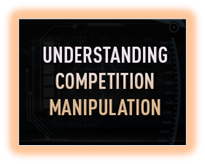Message from Jeremy Luke, CEO
The CCES is pleased to share an update from the first six months of the 2024-2025 fiscal year, highlighting our efforts to promote fair, safe, accessible, and inclusive sport for Canadians. This update speaks to the four priorities identified in the 2022-2027 Strategic Plan: anti-doping, competition manipulation, True Sport and ethical sport engagement. These areas have been essential to fostering positive culture and reinforcing sport integrity, but we are now in the process of establishing a new strategic plan with a clear focus on safe, clean, and fair sport.
Earlier this year, the CCES accepted an expanded mandate and will administer Canada’s new safe sport program as of April 2025. In preparation, we have engaged in extensive consultations, including meetings with athlete groups, survivor and advocacy groups, subject matter experts, sport organizations, and more. The first draft of the Canadian Safe Sport Program Rules was released in October and the final version was published in January 2025. Thank you to everyone who took the time to provide feedback and share their experiences with us. The contributions and support from the sport community have been invaluable throughout this process.
During the process of creating the safe sport program and further becoming a broader sport integrity agency, the CCES reviewed its organizational strategy and structure. The review, coupled with feedback from our safe sport consultations, spurred us to take steps to further formalize our independence from sport. As a result, we recently announced the decision to move on from our work using the True Sport brand. We continue to believe in the values inherent in the True Sport Principles, but we must first and foremost focus on our mandate as an independent regulator of sport integrity. Learn more about this change.
We are grateful for Sport Canada’s ongoing support and their confidence in the CCES to lead this work.
We invite you to read this Progress Report that features milestones and achievements from the first six months of the fiscal year. Thank you for your continued support and interest in our progress towards our objectives.
Anti-Doping
As Canada’s national anti-doping organization, the CCES administers the Canadian Anti-Doping Program (CADP) to protect athletes and maintain the integrity of sport and engages in other anti-doping initiatives. The CADP works to prevent, deter, and detect doping through a comprehensive approach that includes education, prevention, and investigations. Fully compliant with World Anti-Doping Agency’s (WADA) international standards, the CCES provides athletes and support personnel with the tools and resources they need to prioritize clean sport.
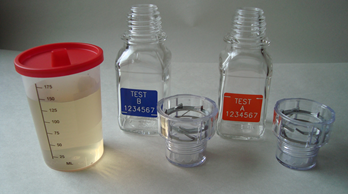
Testing Progress
At the halfway point of the year, we’re on track to meet our fiscal year objectives. Samples collected as of September 30:
1,503 urine samples
380 blood samples
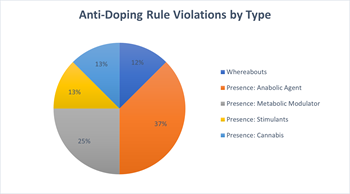
Anti-Doping Rule Violations
Six sanctions were confirmed for various anti-doping rule violations, including the use of anabolic agents and metabolic modulators.
Fee-For-Service Testing
Testing at international events held in Canada included:
- 2024 World Para Ice Hockey Championships
- Women’s Softball World Cup 2024
- 2024 IFAF World Junior Football Championships
Pre-Games Testing
In the lead-up to the 2024 Olympic and Paralympic Games in Paris, France, we implemented a pre-Games testing program that was comprehensive, intelligence based, and incorporated recommendations from expert groups, helping us to meet our pre-Games goals.
Program Development
Internal Anti-Doping Management System
The CCES’s new internal anti-doping management system went live. S2 is a web-based program that will allow for the seamless implementation of our anti-doping initiatives through a connected database structure. The CCES collaborated with three other national anti-doping organizations to create this new system.
DCO Recruitment
We hired and trained five new Doping Control Officers (DCOs) in St. Catharines, ON, Burlington, ON, Saskatoon, SK, Coquitlam, BC, and New Westminster, BC. There are currently 66 CCES-certified DCOs across Canada collecting samples from athletes.
International Collaboration
We’ve been actively involved in global efforts to strengthen anti-doping worldwide. This includes participating in the ongoing World Anti-Doping Code (the Code) consultations to ensure the CADP remains compliant with international standards. The next step is for the WADA Executive Committee to finalize the 2027 Code and International Standards, at which time the CCES will begin consulting on updates for the 2027 CADP.
CCES staff worked closely with our global counterparts, learning from their experiences and sharing best practices. So far this year:
- CCES staff and DCOs worked at the 2024 Paris Olympic and Paralympic Games as part of the Doping Control Command Centre and sample collection teams.
- CCES staff attended the Anti-Doping Intelligence and Investigations Network meetings in Montreal.
- CCES hosted representatives from the Caribbean Regional Anti-Doping Organization (RADO) as part of a programmatic information exchange.
- CCES staff participated in the National Anti-Doping Organization leaders meeting in Strasbourg, France, to discuss global issues such as the 2027 Code consultation process.
- CCES staff were in Reykjavik, Iceland, to discuss the International Standard on Education as part of the Advisory Group on Education of the Anti-Doping Convention.
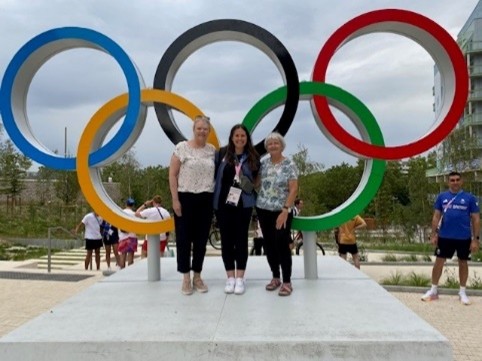 | 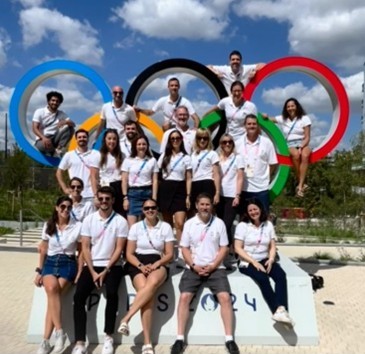 | Image
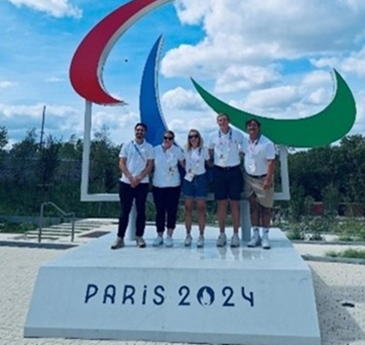
|
| CCES DCOs at the 2024 Paris Olympic Games | Doping control staff at the 2024 Paris Olympic Games | Doping control staff at the 2024 Paris Paralympic Games |
Education and Athlete Services
The Paris 2024 Olympic Games was the first time that Team Canada athletes and support personnel were required to complete both anti-doping and competition manipulation education before the Games. In addition to a True Sport Clean course, they completed Understanding Competition Manipulation – an e-learning course that includes the latest updates from the Olympic Movement Code on the Prevention of the Manipulation of Competition. Over 1,000 learners completed competition manipulation education for the Olympics and Paralympics.
- More than 23,500 learners completed a 2024 True Sport Clean e-learning course, bringing the total for the series to more than 33,000.
- The CCES held four more webinars and two in-person presentations for a range of next gen athletes and support personnel.
- Global DRO substance inquiries from Canadian users totaled 96,510.
- TUE applications under the CADP: more than 140 received, and approximately 85 approved.
Competition Manipulation
The sports gambling landscape in Canada continues to change quickly, and with it the risk of competition manipulation is growing. The CCES is leading the development of a national response to this threat. We’ve made great progress in this area so far this year: in consultation with athletes, NSOs and government, we have developed a national competition manipulation policy known as the Canadian Policy to Prevent Competition Manipulation (CPPCM), are educating the sport community, and receiving anonymous reports through the CCES Integrity Hotline. As a result of several high-profile scandals and the development of the CPPCM, we fielded 16 media requests on the topic.
Policy Development
In April 2024, the CCES and the Canadian Olympic Committee released the first draft of the aforementioned CPPCM for feedback. The CPPCM establishes rules, clearly defines violations, outlines requirements for education, enforcement, and sanctions, and is fully compliant with the Olympic Movement Code on the Prevention of the Manipulation of Competition.
After extensive consultations with the sport community through the summer of 2024, a penultimate draft of the program has been finalized, and we anticipate it will be available for adoption in the spring of 2025.
Education
For the first time, Team Canada at the 2024 Olympic Games in Paris were required to complete Understanding Competition Manipulation; an e-learning course that covers the basic elements of competition manipulation and was recently updated to align with the Olympic Movement Code on the Prevention of the Manipulation of Competition. As a result, it was completed by more than 1,000 learners. The course was also available to all of Team Canada for the Paralympic Games.
Understanding Competition Manipulation was completed more than 11,000 times from April to September 2024. Access Understanding Competition Manipulation.
The CCES’s Clean Sport Educators expanded their training to include competition manipulation. They delivered three pilot presentations to athlete support personnel and athlete groups, and feedback from those presentations will be used to tailor messaging for future engagements.
International Collaboration
The CCES was involved in the Paris 2024 taskforce, led by the Group of Copenhagen, that monitored betting markets, reported on controversies, and tracked media.
The CCES is also actively involved in an education working group that aims to prevent and deter manipulation in sports by identifying existing education and awareness raising strategies, exploring reporting mechanisms, and evaluating how athletes, support personnel, officials, and employees are educated on the topic. The group will further develop guidelines for best practices, create a central repository for educational materials, and foster peer-to-peer support for capacity building.
We continue to participate in the Group of Copenhagen as an observer, an international working group on competition monitoring.
True Sport
For 20 years, True Sport has been the CCES’s approach to values-based sport. Its evolution has been informed by public consultation and research, and the delivery and activation have changed significantly over the years. Originally designed as a social movement that welcomed individuals, communities, facilities, sport organizations, schools, teams, and more, True Sport has been an avenue for participants to publicly signal a commitment to values-based sport.
In order to focus on our new mandate as an independent regulator of sport integrity, the CCES had to consider whether it would be possible to be an independent regulator of sport integrity and an organization that works collaboratively with sport organizations in the manner we have done through True Sport. As a result, we have made the decision to move on from the work we have historically done with the True Sport brand. You can read more about this change in our Letter to the True Sport Community.
We believe wholeheartedly in the values-based sport that True Sport espouses and are pleased to share what this initiative has achieved.
Activation
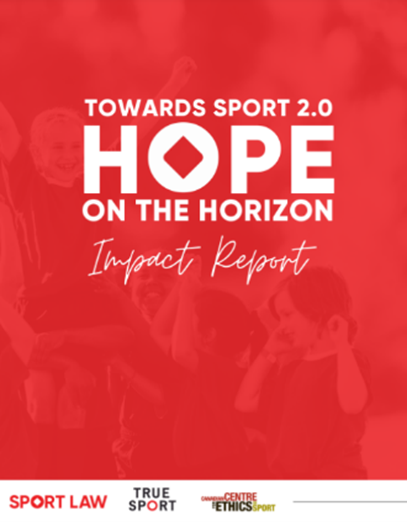 Sport Law and the CCES released Towards Sport 2.0: Hope on the Horizon Impact Report, which captures insights and actions from the nationwide tour. The tour engaged with hundreds of sport leaders committed to re-imagining a new sport delivery model based on shared values and the True Sport Principles.
Sport Law and the CCES released Towards Sport 2.0: Hope on the Horizon Impact Report, which captures insights and actions from the nationwide tour. The tour engaged with hundreds of sport leaders committed to re-imagining a new sport delivery model based on shared values and the True Sport Principles.
The impact report reflects sport leaders’ desires to proactively address the challenges of the current sport landscape and inspire sustainable change.
We welcomed three new True Sport Champions located in Manitoba, Nova Scotia, and Ontario. These leaders promote values-based sport in their communities and help build awareness of True Sport across Canada.
Outreach and Presentations
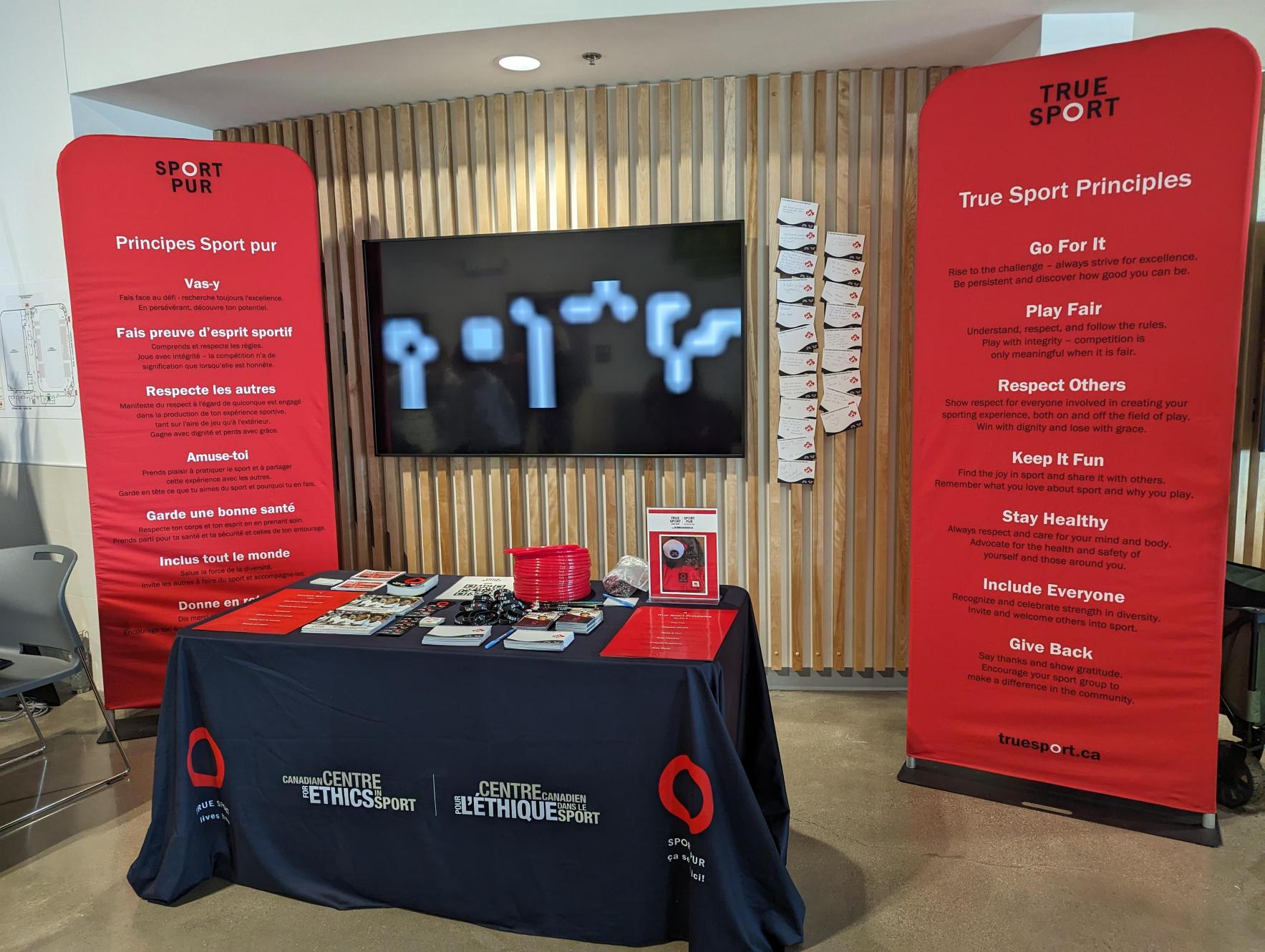 | 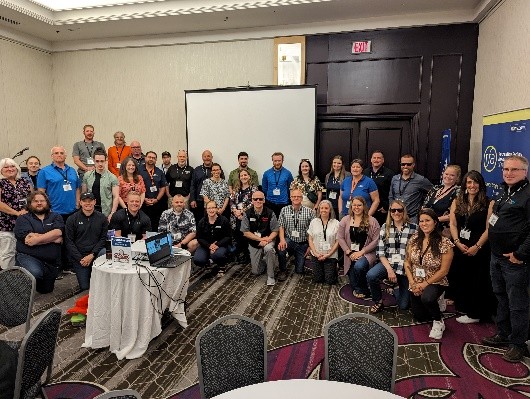 |
CCES staff and True Sport Champions hosted outreach booths at 13 events, providing tools and resources to help participants activate the True Sport Principles. Events included:
| CCES staff delivered nine presentations to share an overview of True Sport and ways to implement the principles in their communities. Audiences included:
|
Events
Six events were declared True Sport events, incorporating good sport into the culture through oaths, awards, promotion, and outreach. Recent events include:
- Volleyball Nova Scotia U18 SuperSeries
- Ontario Rope Skipping Provincials
- Canadian Ringette Championships
- Ontario Artistic Gymnastics Provincials
- Judo Nova Scotia Provincials
- Gymnastics Canada National Championships
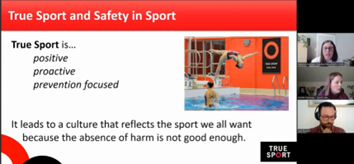 The CCES, in collaboration with Sport Law, launched the first-ever True Sport Webinar Series, focused on how intentionally activating True Sport can foster a sport culture that leaves less room for harm and provides a greater chance for sport to reach its full potential. With over 100 attendees, the webinars received enthusiastic feedback.
The CCES, in collaboration with Sport Law, launched the first-ever True Sport Webinar Series, focused on how intentionally activating True Sport can foster a sport culture that leaves less room for harm and provides a greater chance for sport to reach its full potential. With over 100 attendees, the webinars received enthusiastic feedback.
Watch both webinars on YouTube.
Tools and Resources
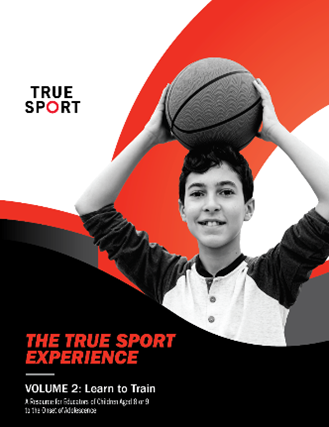 We published volumes 2 and 3 of The True Sport Experience. The activities in this now three-volume resource are ready-to-use for kids in grades 1 to 8. Endorsed by PHE Canada and aligned with Canadian physical education curricula, The True Sport Experience is made for teachers, coaches, and recreational leaders to use in classrooms, communities, and beyond, helping kids embrace the True Sport Principles through quality physical activity experiences.
We published volumes 2 and 3 of The True Sport Experience. The activities in this now three-volume resource are ready-to-use for kids in grades 1 to 8. Endorsed by PHE Canada and aligned with Canadian physical education curricula, The True Sport Experience is made for teachers, coaches, and recreational leaders to use in classrooms, communities, and beyond, helping kids embrace the True Sport Principles through quality physical activity experiences.
The Ontario Coaches Association added True Sport resources to the Safe Sport 101 Playbook. This resource was developed to help coaches create a safe and fun sport experience for everyone. Visit the Safe Sport 101 Playbook online.
Ethical Sport Leadership
The CCES has received and responded to nine ethical enquiries so far this year. We continued to collaborate with the Coaching Association of Canada on the Responsible Coaching Movement (RCM). RCM newsletters went out in June and September and a webinar entitled the “New Definition of Success” was held September 11, 2024.
Governance Essentials adoptions grew to 2,350 seats and 400 completions. BodySense, an interactive e-learning course, was launched in May 2024. It was presented at the annual Canadian Academy of Sport and Exercise Medicine conference and has been widely promoted.
Safe Sport
Following the Minister of Sport and Physical Activity’s decision for the CCES to administer the Universal Code of Conduct to Prevent and Address Maltreatment in Sport (UCCMS), we undertook a comprehensive consultation throughout the spring and summer with two goals in mind:
- understand the current experience with the processes of the Office of the Sport Integrity Commissioner (OSIC) and Abuse-Free Sport, and
- seek thoughts and perspectives on how the CCES should evolve as an organization as it assumes the safe sport mandate.
We sought extensive feedback from the sport community on their experience with OSIC and their perspectives on the Abuse-Free Sport Program. In addition to issuing a survey to program signatories, CCES staff met with more than 60 participants and groups including survivors, athletes, national sport organizations (NSOs), multi-sport organizations (MSOs), subject matter experts, and Sport Canada. We also welcomed suggestions for improvements to the program that the CCES can action once responsibility is assumed on April 1, 2025. Common themes emerging from this process included the importance of a trauma-informed approach, standards of delivery, and transparent communication processes.
Information from these early consultations helped us develop a comprehensive document that sets out clear procedural rules for the independent administration of the UCCMS. Through numerous meetings, and with the support of trauma-informed lawyers, the CCES developed the first draft of the Canadian Safe Sport Program (CSSP). The first draft of the CSSP was designed to recognize the CCES as the body mandated to independently administer and enforce the UCCMS for federally funded sport organizations and to set out the procedures by which the CCES will carry out this mandate. These rules were shared with the sport community in October and feedback gathered advised the next draft.
In September, we hired an Executive Director, Safe Sport, who will lead the CSSP. We also added additional staff capacity to ensure the organization is well positioned to take on this mandate. The education team has developed a multi-phase safe sport education and prevention strategy, and a mandatory e-learning course for participants of adopting sport organizations is available.
About the CCES
The CCES is an independent, national, not-for profit organization that works to protect the integrity of sport, and manages unethical issues in, Canadian sport. Through the administration of its programs, including the Canadian Anti-Doping Program and the upcoming Canadian Safe Sport Program, the CCES strives to ensure sport is fair, safe, accessible, and inclusive for all Canadians.
Mission: To work collaboratively to address unethical behaviours and promote a values-based approach to sport to ensure positive sport experiences for all.
Vision: Sport is fair, safe, accessible, and inclusive.
The CCES acknowledges the financial support of the Government of Canada through Sport Canada and the Department of Canadian Heritage.
![]()
